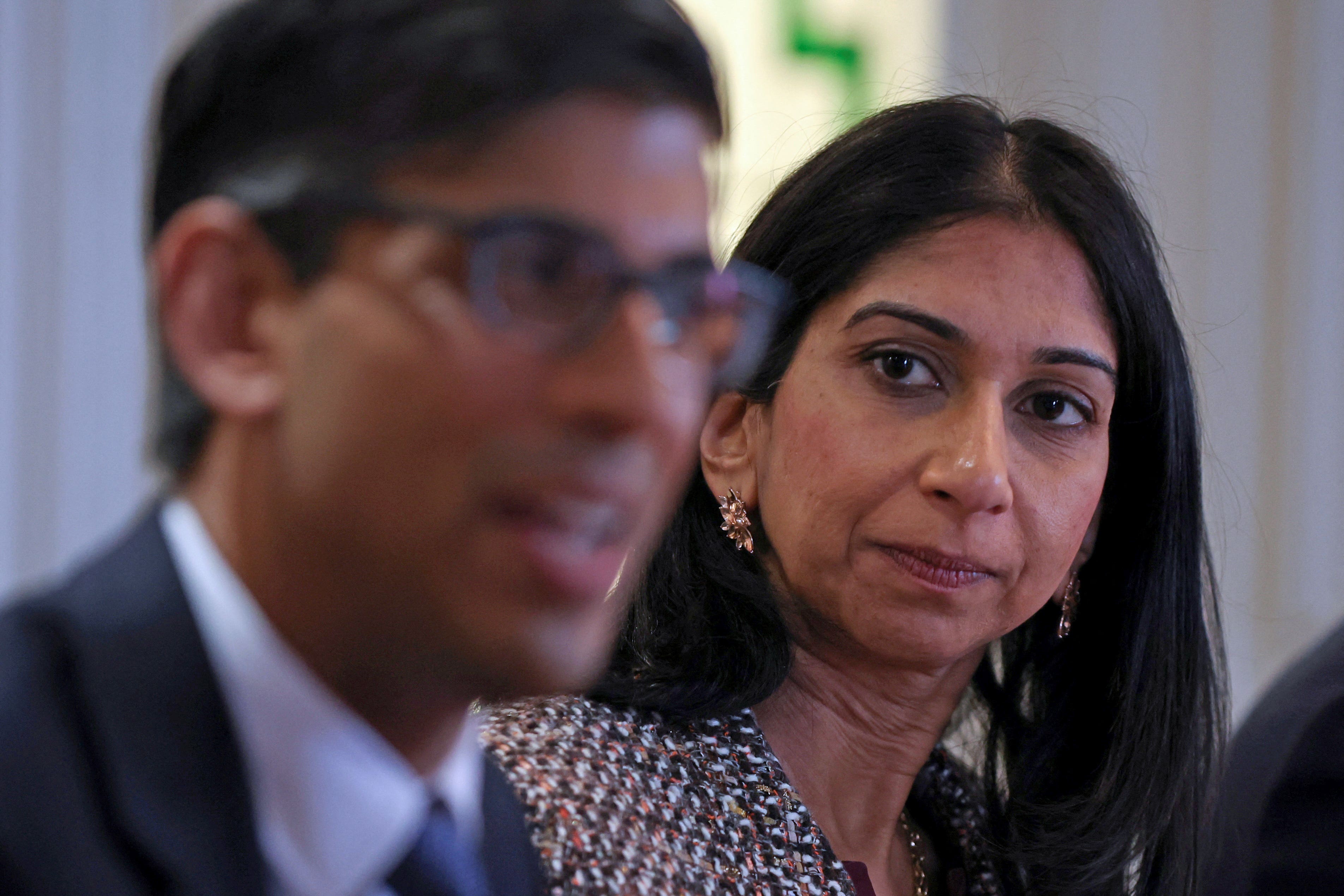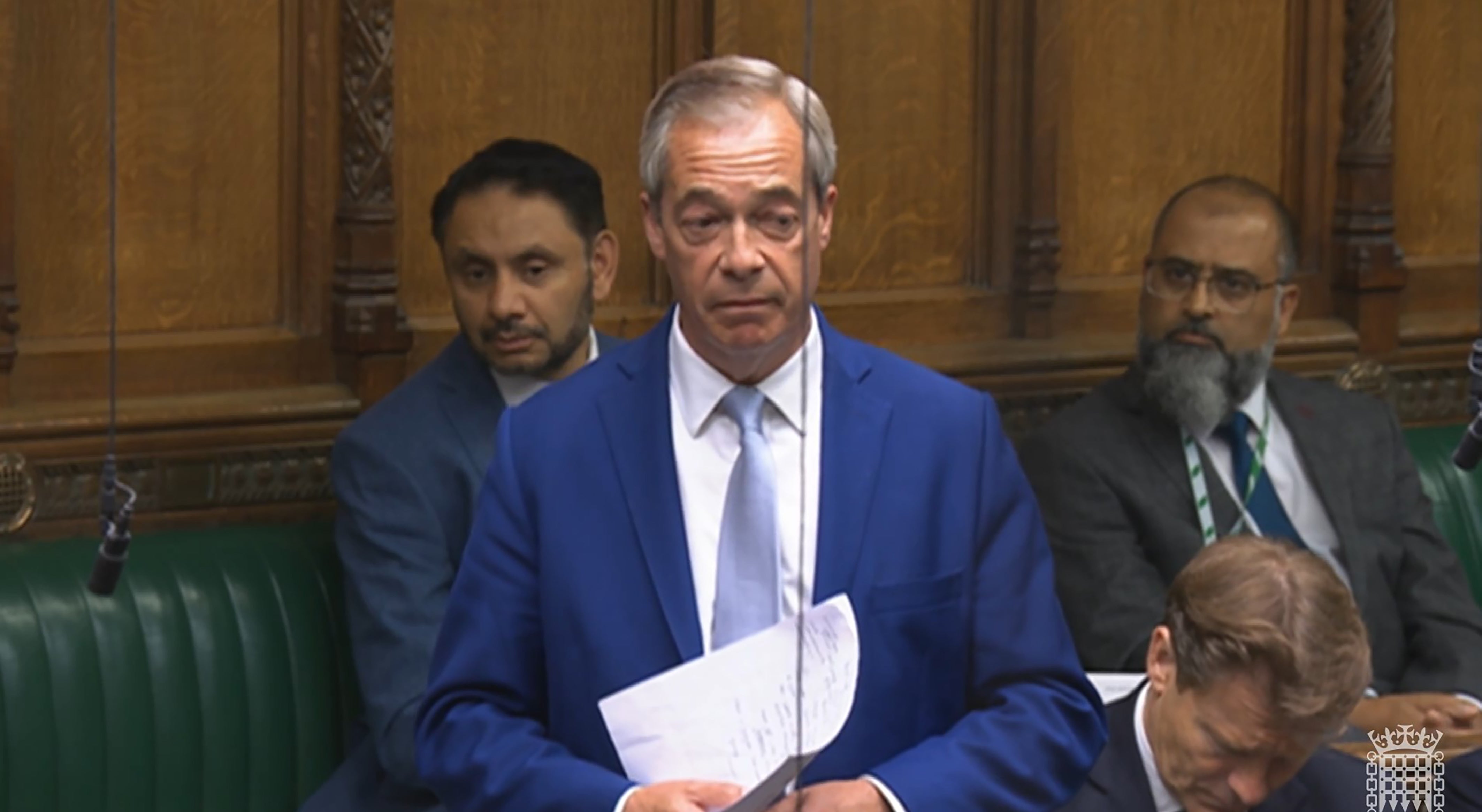[ad_1]
Your support helps us to tell the story
Find out moreClose
As your White House correspondent, I ask the tough questions and seek the answers that matter.
Your support enables me to be in the room, pressing for transparency and accountability. Without your contributions, we wouldn’t have the resources to challenge those in power.
Your donation makes it possible for us to keep doing this important work, keeping you informed every step of the way to the November election

Andrew Feinberg
White House Correspondent
Former Tory prime minister Sir John Major has issued a devastating verdict of Brexit and described Rishi Sunak’s government as “unconservative” and “un-British” in the way it tried to deport asylum seekers to Rwanda.
Speaking to the BBC’s Amol Rajan, Sir John said he agreed with former Labour prime minister Sir Tony Blair that far from reducing immigration as promised by Nigel Farage, Boris Johnson and others, it had in fact increased immigration and replaced Europeans with more people from other parts of the world.
Explaining he had not made any public pronouncements for some time because he found little to like about the last Tory government under Rishi Sunak, he added that the Sunak government’s plans to fly asylum seekers to east Africa was worse than the 18th century deportations of convcts fo Australia.

The full interview, Amol Rajan Interviews: John Major, is on BBC Two at 7pm tonight (Wednesday) and will be available on BBC iPlayer and BBC Sounds from 6am the same day.
Describing the impact on the Conservatives, he said: “Brexit is the most devastating thing that has happened in the Tory party in my life-time.”
Referring to the Rwanda scheme which cost the taxpayer £700 million but failed to see a single asylum seeker flown to the east African country, Sir John was scathing.
He said: “I thought it was un-Conservative, un-British, if one dare say in a secular society, un-Christian, and unconscionable and I thought that this is really not the way to treat people.”
The deportation scheme, which was first announced two years ago by then-prime minister Boris Johnson, was scrapped by Sir Keir Starmer in his first full day as prime minister in July.
“We used to transport people, nearly three hundred years ago, from our country. Felons, who at least have had a trial, and been found guilty of something, albeit that the trial might have been cursory,” he added.
“I don’t think transportation, for that is what it is, is a policy suitable for the 21st century.”
Between 1788 and 1868 around 162,000 convicts were transported from Britain and Ireland to penal colonies in Australia.
When challenged that some saw the scheme as an effective deterrent and that others may view the small boats crossing the channel as ‘un-Conservative’, Sir John said: “Are they seriously saying to me that somewhere in the back woods of some North Africa country, they actually know what the British parliament has legislated for? I think not. I absolutely think that it is not the case.”

On immigration generally, Sir John said he dislikes “intensely the way society has come to regard immigration as an ill in the way it has. I don’t agree with that, I’ve never agreed with it.”
He was in agreement with Sir Tony Blair’s comments to Independent TV earlier this month that Brexit had failed because it had replaced European immigration with greater numbers of migrants from other parts of the world.
Sir John said that while people from Europe have left since Brexit, “other people have been, actually, encouraged by the government to come here, and then there are people who come here by boats who haven’t been encouraged to come here at all, that do, because they’re not quite sure where to go.”
He also explained that he has not done many TV interviews recently because “there’s not been a great deal I could say, I would wish to say, in favour of what the previous government were doing.
“I thought it be better just to stay off the air,” he says, “now, of course, the election’s behind us, the party’s looking again to the future and I can return to speaking out, hopefully in favour.”
Sir John has also not made up his mind as to who he is backing as the next Conservative Party leader, telling the BBC: “I would like to support someone who’s going to look at the long-term problems and make a suggestion as to which direction we should go and bring people back into the party who are genuinely centre right.”

On his reaction to the Conservatives losing the General Election, Sir John noted that “there’s a time when democracy needs a change in government. I could see that in 1997, we had been in government for 18 years and it was perfectly true to say that we were tired and that we were running out of fresh people to make ministers and reinject the government with vigour. And of course the same thing applies [with the recent election results], although it was only 14 years ago.”
Sir John also discussed the current state of his party and its future: “The only party that can legitimately appeal to the centre right is the Conservative Party. And that is what we have to do, we have to decide where our natural support really lies and appeal to them. People may have made a misjudgement about the last election. We lost five votes to Reform UK and people are jumping up and down, and some, rather reckless people are saying, well we must merge with them.”
He warned getting together with Reform “will be fatal,” noting, “we lost 50 to the Liberals, and we lost a huge amount to Labour. We lost the vote on the left, more than on the right. And we have to focus on that centre right position, and we’re not an ideological party, I do think traditionally we have been a commonsense party. And I’m optimistic. I think we have had such a bad defeat, we have got a base upon which we can build, in a wholly new and, I think, potentially effective way.”
[ad_2]
Source link



















